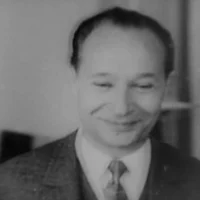On November 28, 1964 — Thanksgiving Day — several hundred students from the Congo and elsewhere set fire to the newly christened John F. Kennedy Library, completely burning it to the ground. The Congo had been in a state of chaos after being granted independence from Belgium in 1960. After the Soviets intervened on behalf… Read More "The Burning of the JFK Library in Cairo — Thanksgiving Day, 1964"
444 Days: Memoirs of an Iran Hostage
More than thirty years later, the Iran Hostage crisis still ranks as one of the most traumatic diplomatic events in U.S. history. Dissatisfied with the corrupt and ineffective regime of Reza Shah Pahlavi, many Iranian citizens began protesting the Iranian government in 1977. In 1979 after nearly two years of protests and strikes, the Shah was… Read More "444 Days: Memoirs of an Iran Hostage"
War of the Waves: Combating Espionage in Embassy Moscow
U.S. relations with Moscow through the decades have been problematic at best while the embassy itself has been the subject of spy scandals, eavesdropping and other Cold War intrigue. One of the strangest episodes was revealed in the 1970s, when the U.S. confirmed that the USSR had been beaming microwaves at the embassy for the… Read More "War of the Waves: Combating Espionage in Embassy Moscow"
Murder in an Embassy, Part II — Paranoid Psychotic or Faked Insanity?
On August 30, 1971, Alfred Erdos murdered his assistant, Donald Leahy, at the small American embassy in Equatorial Guinea. Delusional and paranoid, Erdos accused Leahy of being part of a massive Communist plot against the U.S., tied him to a chair in the communications vault, and stabbed him to death with a pair of scissors.… Read More "Murder in an Embassy, Part II — Paranoid Psychotic or Faked Insanity?"
Murder in an Embassy, Part I — “I am not losing my mind”
A Communist plot, a gruesome murder, a maniacal dictator: all were elements in what would seemingly be the scandal of the decade, if not the plot of a Hollywood thriller. This all-too-real incident, however, has largely fallen under the radar, as only a few now can vaguely recall the remnants of something approaching an urban… Read More "Murder in an Embassy, Part I — “I am not losing my mind”"
Chile’s Coup Against Salvador Allende and the Truth Behind “Missing”
In 1973, political tensions were high in Chile, with conflict arising between the socialist President Salvador Allende and the more conservative Congress of Chile. The Chilean economy was failing, the Supreme Court had denounced Allende’s government, and perhaps more importantly, the military had lost its respect for Allende. During the summer, there had been several… Read More "Chile’s Coup Against Salvador Allende and the Truth Behind “Missing”"
The Assassination of Ambassador John Gordon Mein, Guatemala, 1968
Eight U.S. Ambassadors have died while on duty, six of whom were killed in armed attacks. The most recent was Chris Stevens, who died during the September 11, 2012 attack on Benghazi. (The other two ambassadors died in airplane crashes.) On August 28, 1968, Ambassador John Gordon Mein became the first U.S. ambassador to be… Read More "The Assassination of Ambassador John Gordon Mein, Guatemala, 1968"
In 1968, growing opposition to the failing sociopolitical and economic policies of hard-line Communist regime in Czechoslovakia, led by Antonín Novotný, finally came to a breaking point. Reformist politician Alexander Dubček replaced Novotný as First Secretary of the Communist Party of Slovakia. The period that followed, known as the Prague Spring, saw an expansion in… Read More "A Cold End to the Prague Spring"
Cyprus — August 1974: “It was a blind shot that got the Ambassador”
On August 19th, 1974, recently appointed Ambassador to Cyprus, Rodger Davies, was shot dead during a Greek Cypriot protest outside the U.S. Embassy. The demonstration brought out over 300 people who were protesting against the U.S.’s failure to prevent the Turkish invasion of the northern part of the island the week before. Davies was seeking… Read More "Cyprus — August 1974: “It was a blind shot that got the Ambassador”"
Terror on the 9th Floor — The Kuala Lumpur Hostage Crisis
On August 4th, 1975, five members of the Japanese Red Army or JRA – a militant organization intent on overthrowing the Japanese government and starting a worldwide revolution – stormed the United States embassy on the 9th floor the AIA Insurance building in Kuala Lumpur, Malaysia. The tallest building in Malaysia at the time, it… Read More "Terror on the 9th Floor — The Kuala Lumpur Hostage Crisis"

